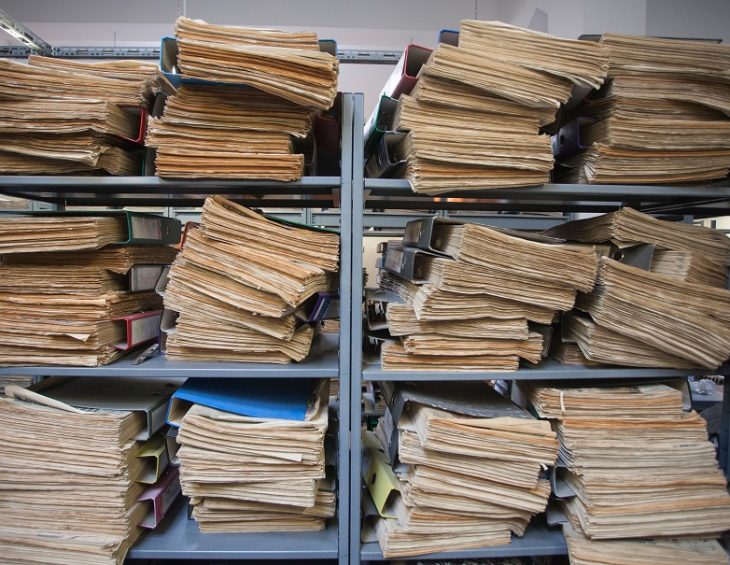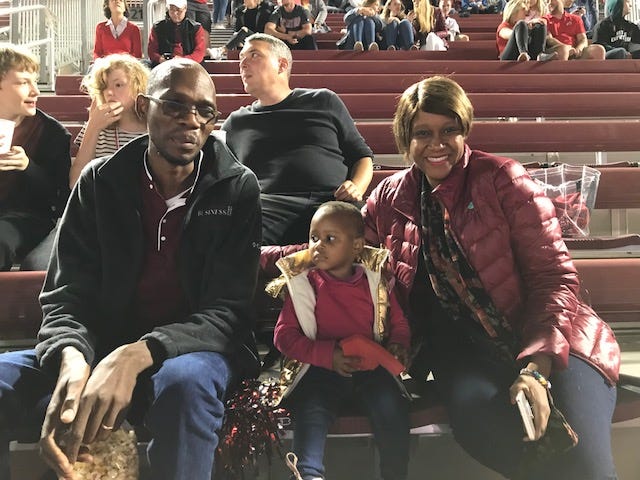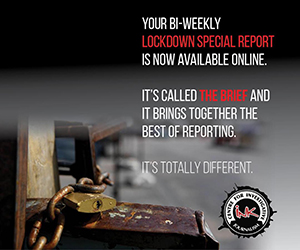
Data journalism is a sure tool to work on some of the tangible problems confronting most African democracies. Credit. Adobe Stock
Life lessons from a year at Stanford
17 June 2019How being a JSK Journalism Fellow inspired personal and professional change
I arrived at Stanford in September last year as a John S. Knight Journalism Fellow with a mission to help journalism in Botswana to hold power more accountable. I wanted something that would challenge me to think differently and uncover new ideas regarding the future of journalism.
What I found instead was broad exposure to new attitudes and concepts that have had profound personal and professional effects. Here’s how:
Becoming a better dad

Being a parent of three young children can be tough, especially when you and your spouse are both pursuing busy careers. Add in managing a nonprofit journalism startup and it’s even more difficult. You spend days away from your family, and you become accustomed to the heavy strains that come with meeting deadlines and trying to meet donors’ ever-shifting demands. I had concluded that it was impossible to be a good parent and a good journalist at the same time — unless you believe that being a great parent includes being away from home at least every two weeks in a month, while your little ones get ignored in a daycare facility.
Then I came to Stanford, and life changed a great deal. My wife, Rethabile, and I have now become expert at creating a work-life balance, and are able to separate what to value and what to ignore. This has been rewarding and has helped me to grow personally. I get to see my family often and everyone is happy. The best way to maintain this balance when I get home is to remain true to what is important to my family and my profession and commit to those values.
Getting out of my comfort zone
I have been an investigative journalist for the better part of my career, chasing after some of Africa’s most corrupt elements, and, sometimes, getting in trouble for it. That is the scary-fun part of what I do. As journalists, we tend to find comfort in working behind the scenes only to surface when we have a huge story that reveals wrongdoing. In most cases, we prefer to stay out of the public glare.
When I arrived at Stanford, I was petrified of public speaking. However, I knew that if I am to have a meaningful contribution to the discourse in journalism I needed to speak up and speak out. I made a calculated decision to sharpen my public speaking abilities and to become more comfortable talking about my work. So, I took a public speaking class at the Stanford School of Engineering to overcome my fear. This was a milestone for me. I am now confident and capable of taking up public speaking engagements and to talking with people more broadly about the work that we do at the INK Centre for Investigative Journalism back home in Botswana. I’ve had conversations with people across disciplines and across the United States about our work, from journalism professors to Nobel laureates, conversations that I plan to continue and build upon in the months and years ahead.
Falling in love with data

In my pursuit of getting comfortable with other things that have made me uncomfortable, I took up a class in data journalism, despite having no talent whatsoever in mathematics. It turns out data journalism is a sure tool to work on some of the tangible problems confronting most African democracies. The Investigative Watchdog Reporting class that I took in spring quarter sparked my curiosity on the importance of data journalism to democracy in a time of growing inequality, whether stories are done by large teams working with massive data sets or by smaller teams making do with limited resources. This is my biggest takeaway from the instructor, Cheryl Phillips, the Lokey Visiting Professor in Professional Journalism at Stanford, and a talented investigative journalist. I am excited at the opportunities I see. I’m looking forward to pursuing data investigations at home in Botswana and to fostering collaborations that help people throughout the African continent.
Saving journalism
Good journalism is worth saving. I came to Stanford to find an alternative approach to help investigative journalism thrive in Africa where politicians pay lip service to accountability.
I am leveraging the intersection between technology and journalism to find approaches that can help reporters and editors continue serving democracy and holding power accountable.
The Exploring Computational Journalism and the Investigative Watchdog Reporting classes I took strengthened my firm belief that journalism must continue to innovate to solve the industry’s many challenges, to support an informed public and to enable democracy to thrive. It’s also shown me that there are many partners in this effort (such as my fellow fellows and the entire JSK network), and we can all find ways to collaborate or to learn from one another. If you’re interested, let’s grab a cup of coffee or reach me at konopo@stanford.edu. I look forward to seeing what we can discover together.


Join the Conversation